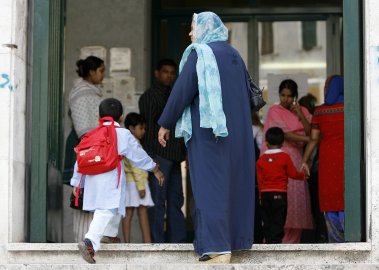Italy Launches Initiative to Help Migrant Children in Schools
Italy has recently taken significant steps to support the integration of migrant children within its educational system. This initiative is a vital response to the growing number of young migrants arriving in the country, many of whom face significant challenges in adapting to a new environment, culture, and language. By focusing on the educational needs of these children, Italy aims to foster a more inclusive society and provide equal opportunities for all students.
The Importance of Early Integration
Integrating migrant children into schools is crucial for various reasons:
- Language Acquisition: Learning the local language is essential for academic success and social integration.
- Cultural Understanding: Education helps children understand and appreciate different cultures, promoting tolerance and acceptance.
- Social Connections: Schools provide a platform for migrant children to make friends and build a support network.
- Psychological Well-being: Attending school can instill a sense of normalcy and stability in the lives of children who may have faced trauma or upheaval.
Details of the Support Project
The newly launched project in Italy focuses on several key areas to facilitate the integration of migrant children in schools:
- Language Support: The initiative offers language courses tailored to the needs of migrant students, ensuring they can keep up with their peers.
- Teacher Training: Educators will receive specialized training on how to effectively teach and support migrant children, understanding their unique backgrounds and challenges.
- Community Involvement: The program encourages local communities to engage with schools to create a welcoming environment for migrant families.
- Psychological Support: Access to counseling services will be made available to help children cope with emotional challenges associated with migration.
Collaborative Efforts
This initiative is not solely the responsibility of the government; it is a collaborative effort involving various stakeholders. Local authorities, non-governmental organizations (NGOs), and educational institutions are coming together to ensure the success of the project. Their combined efforts will help address the multifaceted needs of migrant children and create a supportive educational atmosphere.
Challenges Ahead
While the initiative is a positive step forward, several challenges remain. Some of these include:
- Resource Allocation: Adequate funding and resources must be secured to implement the program effectively.
- Resistance to Change: There may be resistance from some segments of the population regarding the integration of migrant children into local schools.
- Language Barriers: Overcoming language barriers is a significant hurdle that requires ongoing attention and innovative solutions.
- Emotional Trauma: Many migrant children arrive with emotional baggage that can affect their learning experience and social interactions.
Success Stories and Positive Impact
Despite the challenges, there have been numerous success stories from similar initiatives in Italy and other countries. These stories highlight the resilience of migrant children and the positive impact that education can have on their lives. By empowering these children through education, they can achieve their full potential, contribute to society, and break the cycle of poverty.
Looking to the Future
As Italy continues to implement this initiative, it will serve as a model for other countries facing similar challenges. The integration of migrant children into schools is not just about education; it’s about building a more cohesive and harmonious society.
By investing in the future of these children, Italy is investing in its own future, ensuring that all children receive the support and opportunities they deserve. The success of this initiative will depend on collaboration, commitment, and a shared vision of an inclusive society.
Conclusion
Italy’s initiative to help migrant children integrate into schools marks a critical step towards fostering an inclusive educational environment. By prioritizing language support, teacher training, community involvement, and psychological assistance, the project aims to address the unique challenges faced by migrant children.
As the country navigates the complexities of migration and integration, this initiative not only reflects a commitment to education but also a dedication to social cohesion and the well-being of all children. With ongoing support and collaboration, Italy can help ensure that every child, regardless of their background, has the opportunity to thrive in school and beyond.










